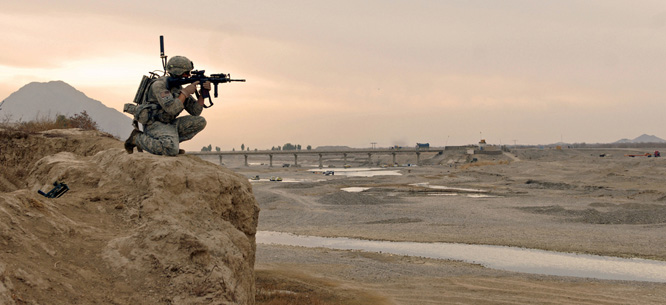Did the U.S. Really Break Iraq? Response to Kathleen Cavanaugh
Did the U.S. Really Break Iraq? Response to Kathleen Cavanaugh

I was glad to read Kathleen Cavanaugh’s article on “Sectarian Entrepreneurs: How the U.S. Broke Iraq.” It is full of information, and it is an excellent guide to how many leftists think about Iraq and other similar places.
But did the United States actually break Iraq? Cavanaugh’s narrative raises questions about her own answer to that question. First of all, she tells us that “the country’s political fissures long predate the U.S. invasion,” and she quotes Eric Davis saying that “political instability and authoritarian rule in Iraq” have their “origins” in deep disagreements with which the United States had nothing to do. She also tells us that during the 1990s, “the Saddam opposition had already created” the dysfunctional “ethno-sectarian system,” which she blames for much of the Iraqi disaster. And, finally, the brutal, repressive policies of Maliki, which made the disaster worse and worse, came after he won a democratic election, which the United States didn’t fix; indeed, in 2005 and ’06, the Americans preferred a different candidate.
The truth is that Iraq in 2003 was already broken, held together only by a brutal tyranny, which the United States overthrew and so exposed the breaks. Yes, the war was unjust, and the occupation radically mismanaged, but that turns out to be only part of the story. Had Saddam’s tyranny collapsed from within, the same “sectarian” wars would likely have begun, and different but similar external interventions would have exacerbated them. It is important to recognize that many bad things happen in the world for which the United States is not entirely responsible.
I put the word “sectarian” in scare quotes just now because this is a word that Cavanaugh uses again and again in order to avoid talking about religion, about Islamist radicalism, and about jihadist warriors—whom she refers to as “fighters from Syria, Iran, Turkey, and elsewhere.” Elsewhere, indeed: the ISIS fighters include Ba’athists and Sunni tribesmen, but what is truly special about the organization is that it has recruited an international brigade of religious zealots from twenty or more countries, the United States and many European countries among them. What makes the recruitment possible is the religious passion that now floats freely across the Muslim world (and also among Hindus, Buddhists, Jews, and, with a little less heat, Christians, too).
I don’t see how anyone can tell the story of the “breaking” of Pakistan, Afghanistan, Syria, Iraq, Sudan, Algeria, Libya, Mali, and Nigeria without talking about the malign effects of religious passion. Of course, it’s not the whole story, but there are too many people on the left who pretend that it’s not the story at all. Religion is an epiphenomenon; it lives, so to speak, in the superstructure, while all true stories, all scientific explanations, must begin from the economic base. But religious passion has shown itself time and time again to be a motive for political engagement that may be even stronger than economic greed.
Cavanaugh is properly cautious about the importance of the economic greed of oil companies. She asks, “Did oil interests play any role in the Obama administration’s decision to intervene in Iraq in August?” And she answers with a one liner: all those American businessmen in Erbil weren’t there “to take in the mountain air.” So she wants readers to think that the answer is yes, though she doesn’t want to say so. Since 2003 we have been told, much more emphatically, that the answer is always yes, whatever the date of the intervention. Maybe that’s right, but I would like to see a worked out argument, which we don’t get here.
I am sure that there are always economic motives in political life, but what we are seeing right now in Iraq and other places is a kind of religiously driven political action which is like nothing we have seen since the wars of the Reformation. We need some people on the left who are ready to think about that.
To read Kathleen Cavanaugh’s response, click here.
Michael Walzer is the co-editor emeritus of Dissent.





